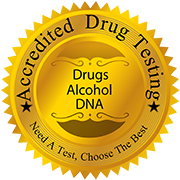Maintaining a safe and drug-free workplace depends on set processes that involve multiple entities including the employer, the supervisor, the company representative, collector and lab personnel, the Medical Review Officer (MRO), the Substance Abuse Professional (SAP) and, often, the Third-Party Administrator or Consortium.
Reasonable Suspicion (or Reasonable Cause) testing is one important component of the drug-free workplace policy. Supervisors responsible for making a Reasonable Suspicion determination have a critical role in preventing impaired employees from engaging in safety-sensitive work. This course mirrors federal testing regulations, which provide best practices on the:
- process and protocols of Reasonable Suspicion testing
- qualifications and professional judgment the supervisor must have to make a Reasonable Suspicion determination
- Reasonable Suspicion training requirements
This Course
This is a professional-level course that qualifies supervisors to make a Reasonable Suspicion testing determination. The course trains in best practices for drug and alcohol screening policies of non-regulated companies in the private sector, across multiple industries.
| Course Level | Deliverables | Applicability |
|---|---|---|
| Professional | Qualifying Examination | Multiple Industries |
| Eligibility | Public Sector | |
| Certification | Private Sector | |
| Regulated by local, state and federal authorities |
This training is process-driven to ensure across-the-board consistency. A standardized process is key to protecting public and workplace safety as well as the rights and interests of the employee, who is subject to testing, the employer and the individual assigned the role of making the determination.
After completing the course, participants should expect to:
1. Understand their role as a Reasonable Suspicion supervisor.
2. Be familiar with best policy practices concerning Reasonable Suspicion.
3. Recognize the common symptoms of substance use and impairment.
4. Understand guidelines for evaluating employee behavior, appearance and performance.
5. Be able to implement and complete one standard process for making a Reasonable Suspicion determination.
6. Know how to appropriately document the process.
Upon taking and passing a final examination, participants will be issued a Certificate of Completion confirming that they are eligible to take on the role of a supervisor for Reasonable Suspicion testing.
Click on each lesson to take the course.

